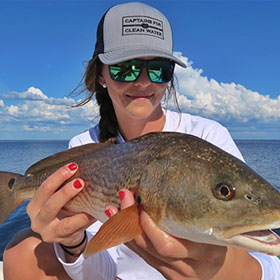How Boating Affects the Environment: 6 Tips for Reducing Your Environmental Impact
By Alycia Downs
Aug 07, 2018
Learn how boating affects the environment. Conservation and boating tips to help boaters reduce their environmental impact and preserve natural resources.
There is no feeling that compares to boating across the water, wind in your hair and sunshine on your face. The euphoric boating experience leads enthusiasts to spend countless hours on the water with family and friends. To preserve these resources for future generations, boaters must be aware of how boating affects the environment. This article covers conservation and boating tips to help reduce your environmental impact while enjoying the water.
1. Quickly Clean Up Oil and Fuel Spills
Use rags to clean up spills on board and do not wash them into the water. Use the proper facilities to dispose old filters and used oil. Avoid overfilling your fuel tank so that spilled fuel doesn’t overflow into the water.
2. Dispose of Debris Properly
Water pollution is a prominent example of how boating affects the environment negatively. Stow debris and used fishing line in a secure hatch to prevent loose items from blowing into the water. If you find debris on the water or shorelines, pick it up and dispose of it appropriately.
3. Use Care Operating in Shallow Water
Your boat propeller can wreak havoc on underwater habitats and wildlife. Be aware of shallow areas, idle in shallow water and don’t try to throttle up until you reach a sufficient depth. Be aware of how boating affects the environment so you can operate without causing harm to aquatic ecosystems below the surface.
4. Use Smart Cleaning and Maintenance Practices
Use eco-friendly, natural and non-toxic cleaning products. Wax the hull regularly to prevent grime buildup and avoid the need for harsh cleaning solutions. Conduct boat maintenance when your boat is out of the water to avoid spillage of chemicals or hazardous waste into waterways.
5. Comply With Laws and Posted Signs
Responsible boaters should be stewards of safe boating and the environment. Be informed of boating operation laws and environmental regulations to ensure compliance and mind posted signs and markers.
6. Upgrade Boat for Fuel Efficiency
Older boats tend to be less fuel efficient and may be more prone to leaks and other discharges that harm the environment. Consider upgrading to a newer watercraft that is environmentally friendly.
For more tips on boating and the environment, check out these Ten Tips for Clean Boating.









